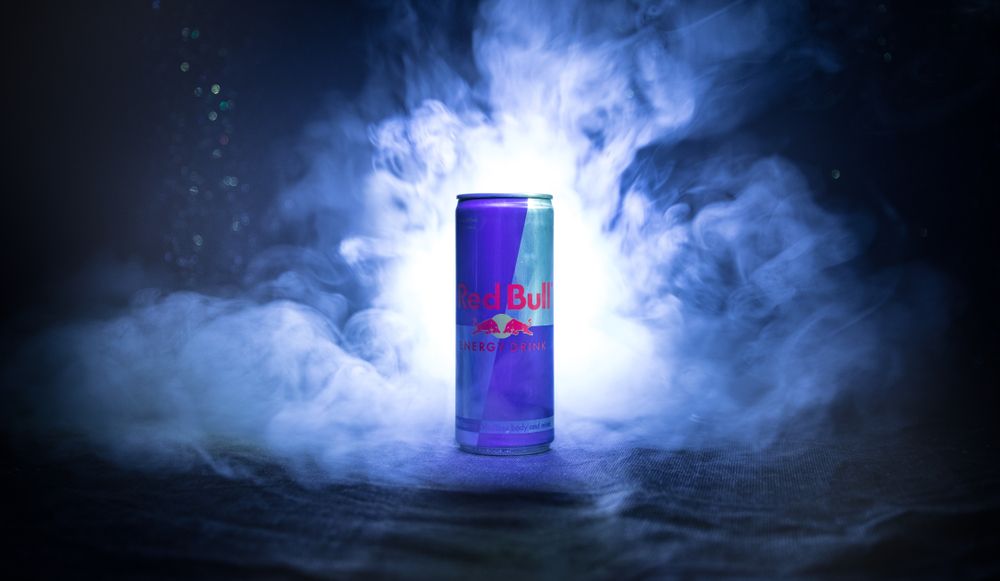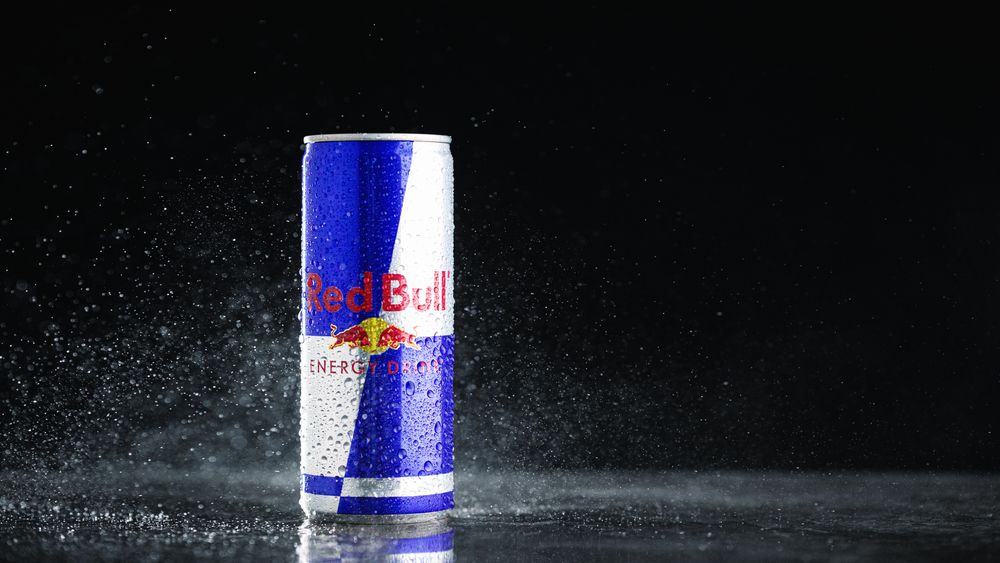
Red Bull is one of the most popular energy drinks worldwide, known for its promise to boost energy levels and "give you wings." But is that quick energy surge really good for your health? Like many energy drinks, Red Bull raises concerns about potential side effects. So, is Red Bull actually beneficial, or does it come with hidden risks?
We’ve analyzed Red Bull’s ingredients, nutritional profile, potential health benefits, and possible downsides, offering expert insights to help you make an informed choice. Read on to learn more, and don’t miss our guide on 10 Natural Ways To Boost Your Energy All Day Long.
What Ingredients Are In Red Bull?
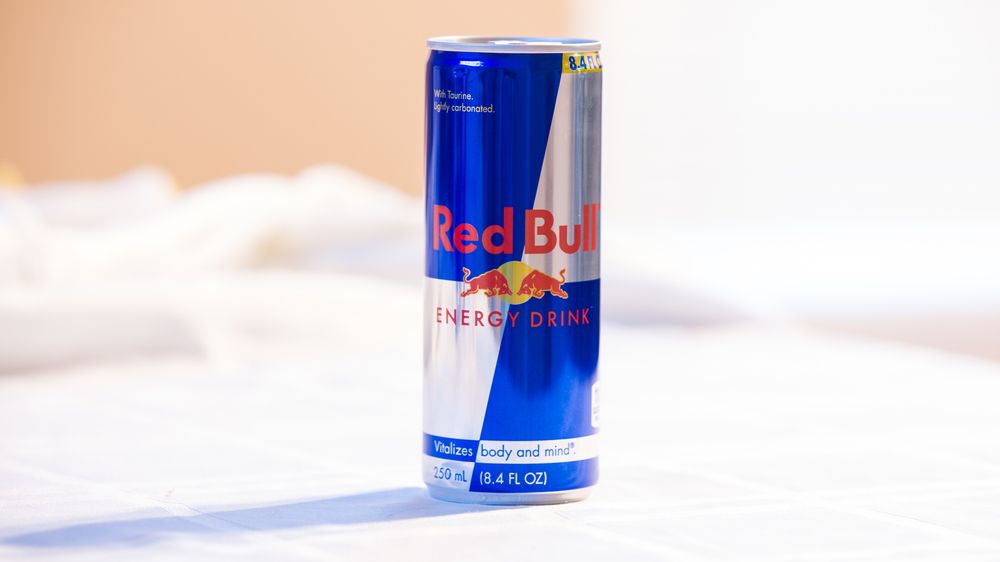
Red Bull contains several ingredients aimed at boosting energy, enhancing focus, and improving performance. Key components include:
- Caffeine: The primary stimulant, known for increasing alertness and reducing fatigue.
- Taurine: An amino acid that supports heart health and athletic performance.
- B Vitamins: Including B3, B5, B6, and B12, these help convert food into energy, aiding metabolism.
- Sugar: Provides a quick source of energy through simple carbohydrates.
- Carbonated Water: Adds the characteristic fizz and serves as the drink’s base.
- Citric Acid: Contributes a tart flavor and acts as a preservative.
Nutritional Profile of Red Bull
Here’s a breakdown of the standard nutritional content in an 8.4 fluid ounce can of Red Bull.
Nutrition (Per 8.4 fl. oz can):
- Calories: 110
- Fat: 0 g (Saturated Fat: 0 g)
- Sodium: 105 mg
- Carbohydrates: 29 g (Fiber: 0 g, Sugar: 27 g)
- Protein: 0 g
In addition to the basic nutrition facts, Red Bull contains key vitamins and minerals:
- Niacin (B3): 140% of the daily recommended intake (DRI)
- Pantothenic Acid (B5): 50% DRI
- Vitamin B6: 360% DRI
- Vitamin B12: 120% DRI
Health Benefits of Red Bull
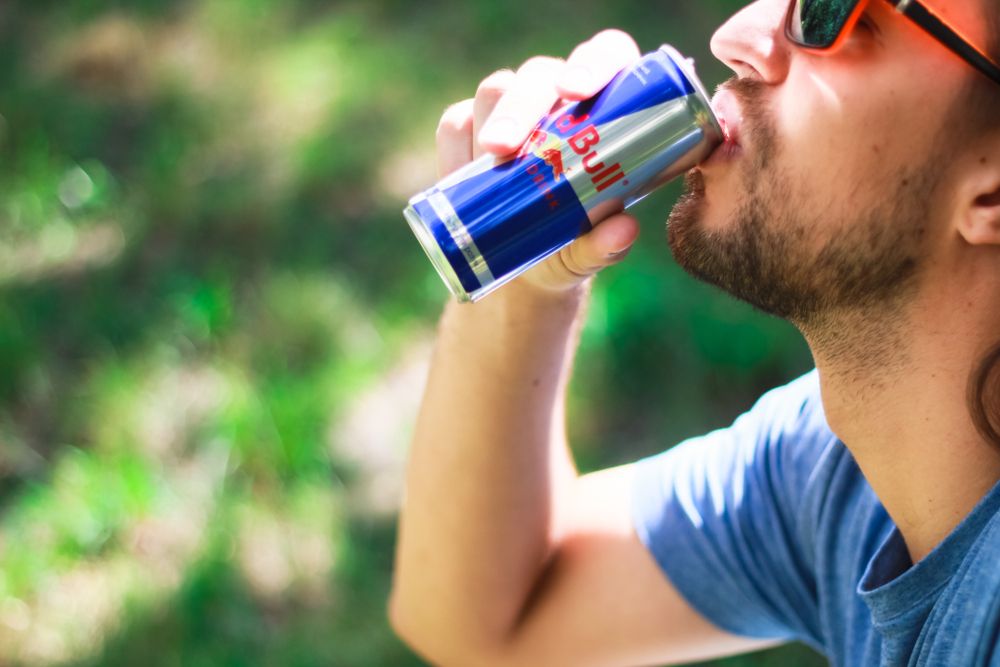
May Provide an Energy Boost
One of the main reasons people turn to Red Bull is for its quick energy boost. Thanks to its caffeine content, Red Bull acts as a stimulant for the central nervous system, helping you feel more alert and focused. Each 8.4-ounce can contains 80 milligrams of caffeine—slightly less than a cup of coffee but enough to reduce fatigue for several hours. This makes Red Bull a popular choice for long workdays or late-night study sessions when you need to stay sharp and attentive.
May Improve Athletic Performance
The combination of caffeine and taurine in Red Bull may enhance both mental and physical performance. Caffeine is known to improve endurance and reduce perceived exertion during physical activity, making it a favorite among athletes. Taurine, an amino acid found in Red Bull, may support muscle function and heart health. As a pre-workout drink, Red Bull can help increase focus and reduce fatigue, allowing athletes to train longer and harder. This combination of ingredients may also improve reaction times and mental clarity, offering benefits for both the body and mind during high-intensity activities.
May Help with Vitamin Supplementation
Red Bull contains several B vitamins, including B3, B5, B6, and B12, all of which play a crucial role in energy production and metabolism. These vitamins help the body convert carbohydrates, fats, and proteins into usable energy, making Red Bull a convenient option for those who may be lacking these vitamins in their diet. B vitamins also support brain function, nerve health, and red blood cell production. While the immediate energy boost primarily comes from caffeine and sugar, the inclusion of B vitamins offers additional benefits, especially for individuals with dietary gaps. However, it’s important not to rely solely on energy drinks for nutrition, as balanced meals are essential for overall health.
Potential Drawbacks of Red Bull
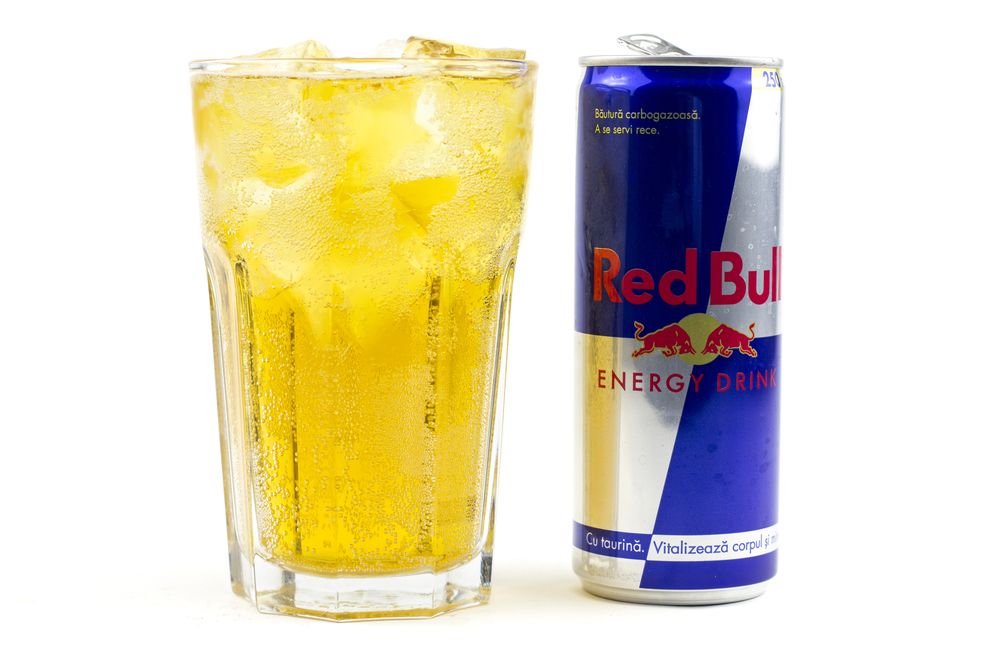
Contains High Sugar Content
One can of Red Bull contains 27 grams of sugar, exceeding the daily recommended limit for most adults. Regularly consuming sugary drinks like Red Bull can contribute to weight gain, insulin resistance, and a higher risk of developing type 2 diabetes.
While the sugar may provide a quick energy spike for athletes or those needing fuel for intense workouts, it can also cause a rapid energy crash afterward. To maintain optimal energy levels, it’s essential to rely on nutritious foods rather than energy drinks alone. If you're not using Red Bull for athletic performance or intense exercise, consider choosing the sugar-free version or reducing consumption altogether.
May Lead to Excessive Caffeine Intake
Caffeine is the main component responsible for Red Bull’s energy boost, but consuming too much can lead to negative side effects. With 80 milligrams of caffeine per can, Red Bull can cause jitteriness, restlessness, and increased anxiety, particularly in those sensitive to caffeine or when consumed in excess. High caffeine intake can also disrupt sleep, leading to insomnia or poor sleep quality. To avoid exceeding the recommended daily limit of 400 milligrams of caffeine, it’s essential to monitor your intake from all sources, including coffee and other beverages.
Potential for Heart Health Issues
There are concerns that energy drinks like Red Bull may negatively affect heart health, particularly in individuals with pre-existing cardiovascular conditions. Some research suggests that energy drinks can elevate heart rate and blood pressure due to their high caffeine and sugar content, potentially increasing the risk of heart palpitations, arrhythmias, or other cardiovascular problems. If you have high blood pressure, heart disease, or are prone to heart issues, it's best to avoid energy drinks or consult with a healthcare professional before consuming them.
Contains Empty Calories
Red Bull provides a quick energy boost, but its nutritional value is limited. At 110 calories per can—most of which come from sugar—Red Bull offers "empty calories," meaning it provides energy without essential nutrients like protein, fiber, or healthy fats that support long-term health and fullness. Regularly consuming empty calories can contribute to weight gain and potential nutrient deficiencies if not balanced with a diet rich in whole, nutrient-dense foods.
May Interfere with Sleep
The caffeine in Red Bull can interfere with sleep, particularly if consumed later in the day. With a half-life of 5-6 hours, caffeine can stay in your system for several hours, potentially disrupting your ability to fall asleep and maintain restful sleep. For individuals sensitive to caffeine, this can lead to insomnia, restless sleep, and long-term sleep disturbances, which can negatively impact overall health. This unintended consequence may even counteract the short-term energy boost Red Bull provides.
Final Thoughts: Is Red Bull Bad for You?
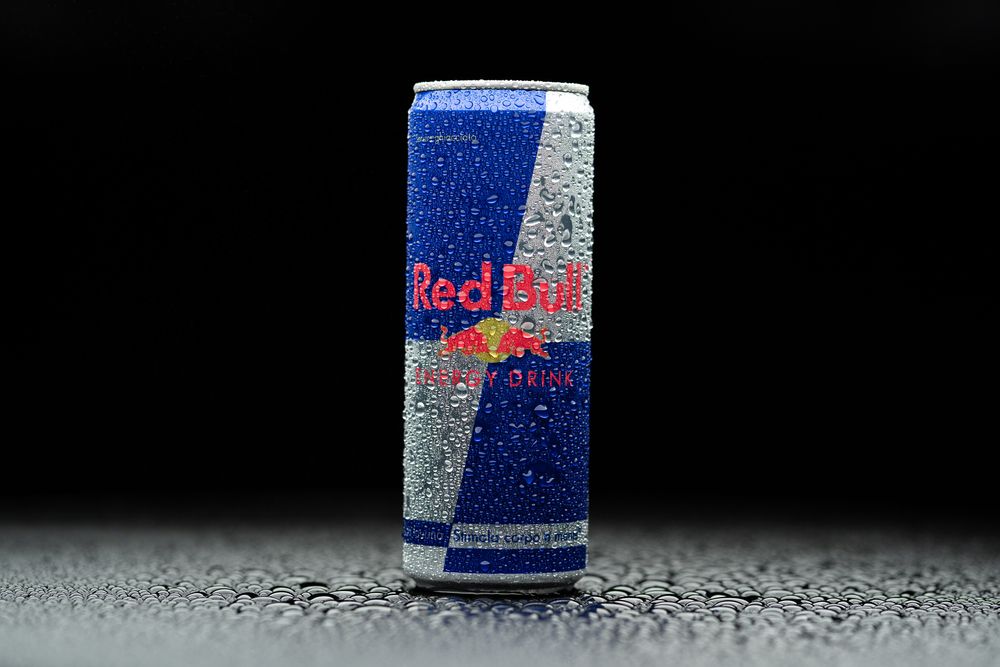
Red Bull can offer both benefits and drawbacks, depending on how it's consumed. While it delivers a quick energy boost and improved focus, its high sugar and caffeine content can lead to negative health effects if consumed regularly or in large amounts. For those sensitive to caffeine or aiming to reduce sugar intake, Red Bull may not be the healthiest option.
If you're looking for healthier alternatives, consider low-sugar energy drinks like Zevia Energy, which uses natural sweeteners, or V8 +Energy, made from fruits and vegetables with a lower caffeine content. These options provide a more balanced energy boost without the risks associated with excessive sugar and caffeine.

